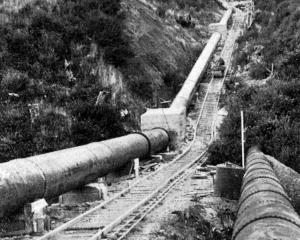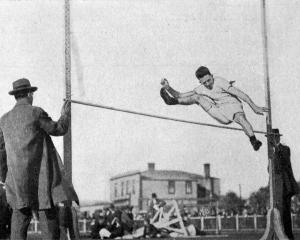Civil servants and others on fixed salaries have found this to be the case when transferred from other towns to the capital.
Married men who have been ''promoted'' to Wellington with an increase of salary of £25 per annum have found the promotion to be merely nominal, the higher cost of food and of house rent more than swallowing up their increased pay.
There is a pronounced disinclination on the part of many officers of the civil service to be transferred to Wellington.
At least one private company with many branches throughout New Zealand has allowed an extra 10 per cent increase of salary to its officers domiciled in that city.
This course was adopted after a consultation with the Government statistical office on the cost of living in the capital.
Civil servants have rather strong views on the subject, and, were it not for the war, it is stated that a movement would be originated to ask the Government to make some additional allowance to their public servants in Wellington.
It is felt, however, that the present is not an opportune time to press their claims.
• Mrs Arthur E. G. Rhodes, of Christchurch, has started the idea of knitting a scarf, to be presented to her Majesty Queen Mary on behalf of the St John Ambulance Association's Ladies' Red Cross Committee, and her Excellency the Countess of Liverpool has acceded to the request made to her by Mrs Rhodes to knit the first row.
The idea is that everyone desirous of participating in the gift knits a row and donates a shilling or more, and, at the same time, writes her name and address in a book.
When finished the scarf and signatures will be forwarded by her Excellency to her Majesty, with the request that the scarf be given to one of their Majesties' sons, now serving his country, and the fund so obtained will be expended by the Canterbury ladies on comforts for their own boys at the front.
The wool chosen is a colonial wool of a pale grey shade, a colour much liked by the Queen.
The scarf is to be a Canterbury Red Cross offering.
• Evidence of the mildness of the winter at Hampden up to the present is supplied by a resident, who has forwarded us a packet containing a number of long red early kidney potatoes.
The first crop, planted on August 1, 1914, was dug full-grown on December 24.
On January 10, 1915, the potatoes commenced to bud, and a few were planted, with the result that a second crop has been obtained, 14 tubers being dug up from one seed potato.
A neighbour of the resident referred to has a pear tree in full bloom.
• One of the largest fish of the squid or octopus species yet seen in Kaikoura was discovered on the beach.
The body of the fish was about 9ft long, of a torpedo shape, and the largest feeler measured 19ft.
Two feelers were cut off by Mr Smith, who also secured the beak.
One of the feelers, measuring about 15ft, was on view at the Kaikoura Star Office.
It was impossible to secure the body and the hightide washed it to sea.
• Motorists who have been trapped on the Ashburton bridge and fined severely because they infringed the by-law limiting speed over the bridge to the ridiculous rate of six miles an hour will be glad to hear that at Thursday's meeting of the County Council the by-law was rescinded and the speed limit increased to 10 miles an hour. - ODT, 7.7.1915.
• COPIES OF PICTURE AVAILABLE FROM ODT FRONT OFFICE, LOWER STUART ST, OR WWW.OTAGOIMAGES.CO.NZ












